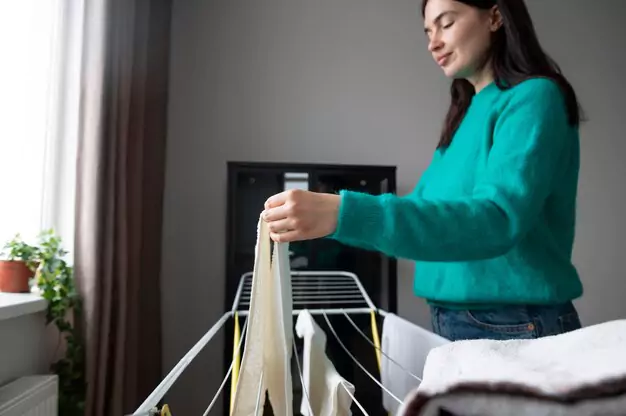Good bath towels can last for an average of 5 to 10 years, depending on their quality and maintenance. Now let me explain in more detail how long good bath towels should last and what factors can affect their lifespan.
Bath towels are an essential part of our daily hygiene routine. They are used regularly and subjected to constant washing and drying. Therefore, it’s important to invest in good quality towels that can withstand frequent use and maintain their absorbency over time.
The lifespan of a bath towel can vary depending on various factors, such as the quality of the fabric, the frequency of use, and the care taken during washing and drying. High-quality towels made from durable materials like Egyptian cotton or Turkish cotton can last longer than lower-quality towels. Regularly washing and drying towels according to the manufacturer’s instructions can also help prolong their lifespan. Over time, towels may start to lose their softness, absorbency, and overall quality, indicating that it’s time to replace them. Good bath towels can last anywhere from 5 to 10 years with proper care and maintenance. It’s important to invest in good-quality towels and follow the recommended cleaning instructions to ensure their longevity.
- 1 Factors Affecting The Lifespan Of Bath Towels
- 2 Understanding Fabric Construction And Its Impact On Towel Lifespan
- 3 Essential Tips For Proper Towel Care And Maintenance
- 4 Measuring Towel Lifespan Based On Frequency Of Use
- 5 The Impact Of Environmental Conditions On Towel Longevity
- 6 Signs To Look For When Determining Towel Replacement
- 7 Tips For Prolonging The Lifespan Of Bath Towels
- 8 Frequently Asked Questions For How Long Should Good Bath Towels Last?
- 9 Conclusion
Factors Affecting The Lifespan Of Bath Towels

When it comes to purchasing bath towels, one of the key factors to consider is their longevity. After all, nobody wants to invest in towels that wear out quickly or lose their softness and absorbency over time. The material quality of the towel plays a crucial role in determining how long it will last. In this article, we will delve into the lifespans of three popular towel materials: cotton, microfiber, and bamboo. Understanding their durability will help you make an informed decision when choosing the perfect bath towels for your home. Let’s explore each material in detail.
Cotton towels and their lifespan
Cotton towels have been a long-time favorite in many households due to their softness, absorbency, and durability. The natural fibers of cotton make them highly breathable and comfortable to use. Additionally, cotton towels have excellent water absorption capabilities, making them perfect for drying off after a refreshing bath or shower. With proper care and maintenance, high-quality cotton towels can last for several years, ensuring you get the most out of your investment.
When it comes to the lifespan of cotton towels, it’s important to consider the type of cotton used. Egyptian and Turkish cotton are known for their superior quality and extended longevity. These towels are crafted from long-staple cotton fibers, which are stronger and more resistant to wear and tear compared to short-staple cotton. The longer the fibers, the less likely the towel is to lose its shape, shrink, or become thin and worn out over time.
Microfiber towels and their lifespan
Microfiber towels have gained immense popularity due to their exceptional absorbency and quick-drying properties. Made from a blend of polyester and polyamide fibers, microfiber towels offer a smooth and velvety texture that feels gentle against the skin. These towels are designed to effectively capture and hold onto moisture, making them ideal for gym-goers, swimmers, or those seeking a lightweight alternative to traditional bath towels.
In terms of lifespan, microfiber towels can last for a considerable amount of time with proper care. However, it’s important to note that their durability is partially dependent on the quality of the microfiber. Higher-quality microfiber towels tend to have denser fibers that are less prone to fraying and deterioration. It is recommended to wash microfiber towels separately from other fabrics and avoid using fabric softeners or harsh detergents, as they can diminish the towel’s effectiveness and longevity.
Bamboo towels and their lifespan
Bamboo towels have gained popularity in recent years due to their eco-friendly nature and luxurious feel. Bamboo fibers are naturally hypoallergenic, antimicrobial, and incredibly soft, making them a popular choice for individuals with sensitive skin. These towels offer excellent absorbency and a plush texture that rivals even the softest cotton towels.
When it comes to lifespan, bamboo towels have gained a reputation for durability and longevity. The bamboo fibers used in these towels are naturally strong and resilient, ensuring they can withstand repeated use and regular laundering. Bamboo towels also have the advantage of staying odor-free for longer periods, thanks to their antimicrobial properties. By following the care instructions provided by the manufacturer, you can extend the lifespan of your bamboo towels and enjoy their softness and absorbency for years to come.
Comparison of different towel materials
While all three materials – cotton, microfiber, and bamboo – offer their unique advantages, it’s essential to consider certain factors when choosing the ideal towel for your needs. Here’s a quick comparison:
| Towel Material | Lifespan | Key Features |
|---|---|---|
| Cotton | Several years | Softness, absorbency, breathability |
| Microfiber | Varies based on quality | Exceptional absorbency, quick-drying, lightweight |
| Bamboo | Long-lasting | Eco-friendly, hypoallergenic, antimicrobial |
Ultimately, the lifespan of a towel depends on various factors, including the quality of the material, how it is used, and how well it is cared for. Regardless of the material you choose, proper maintenance, such as washing at appropriate temperatures and avoiding harsh chemicals, can significantly extend the life of your towels. By considering your preferences and requirements, you can select bath towels that provide both comfort and durability, allowing you to enjoy their softness and functionality for years on end.
Understanding Fabric Construction And Its Impact On Towel Lifespan

When it comes to selecting bath towels, longevity is an important factor to consider. You want to invest in towels that not only feel soft and absorbent but also retain their quality over time. Understanding fabric construction is key in determining how long good bath towels should last. From towel density and durability to weave types and their effects on longevity, let’s explore the factors that contribute to a towel’s lifespan.
Towel Density and Durability
Towel density refers to the number of yarns per square inch in the fabric. It plays a significant role in determining a towel’s durability and lifespan. High-density towels have a higher yarn count, making them denser, heavier, and more durable. They tend to last longer compared to low-density towels, which have a lower yarn count and are lighter in weight. These lightweight towels may dry faster, but they may not withstand repeated use and frequent laundering as well as high-density towels.
When choosing bath towels, opt for those with a higher density for longer-lasting performance. Look for towels with a yarn count of at least 500 GSM (grams per square meter) or more. These dense towels not only survive regular use but also maintain their softness and absorbency even after multiple washes.
Weave Types and Their Effects on Longevity
The weave type of a towel affects both its durability and lifespan. Different weave patterns offer varying levels of strength and resistance. Some common weave types include terry, waffle, and jacquard. Understanding each weave type can help you select the right towels for extended use.
Terry towels, known for their looped pile construction, are highly absorbent and durable. The looped threads increase the towel’s surface area, allowing it to efficiently soak up moisture. They are a popular choice for regular use in bathrooms due to their longevity.
Waffle weave towels, on the other hand, are textured and lightweight. The unique waffle pattern enhances airflow, making these towels quick-drying and less susceptible to mildew. While they may not be as durable as terry towels, waffle weave towels can still offer good longevity if cared for properly.
Jacquard towels feature intricate patterns woven into the fabric, adding a touch of elegance to your bathing experience. Although not as common as terry or waffle towels, jacquard towels can provide durability and longevity when made with high-quality materials and craftsmanship.
Choosing the Right Fabric Construction for Long-Lasting Towels
When it comes to selecting bath towels that will last, considering the fabric construction is crucial. To ensure longevity, look for towels with a high-density weave and durable construction. Here are some tips to help you in your quest:
- Check the towel’s label for information on density or GSM. Aim for a minimum of 500 GSM for optimal durability.
- Feel the towel’s weight and thickness. Heavier and denser towels often indicate better quality and longevity.
- Inspect the stitching and seams. Look for well-secured edges and reinforced stitching to ensure the towel can withstand regular use and laundering.
- Consider higher-end materials like Egyptian or Pima cotton, known for their softness and durability.
By paying attention to towel density, weave types, and fabric construction, you can choose bath towels that will stand the test of time. Remember, investing in high-quality towels not only gives you a superior bathing experience but also saves you money in the long run.
Essential Tips For Proper Towel Care And Maintenance

Good bath towels are an essential item in every household, providing comfort and functionality for a refreshing bathing experience. However, to ensure the longevity and optimal performance of your towels, it is crucial to follow proper care and maintenance practices. By adopting a few simple techniques, you can increase the lifespan of your towels, maintaining their softness, absorbency, and overall quality. In this section, we will discuss some essential tips for proper towel care and maintenance.
Washing and Drying Techniques for Preserving Towel Quality
When it comes to washing your bath towels, it is essential to follow the right techniques to preserve their quality. Here are some best practices:
- Wash your towels separately from clothing items to avoid friction and potential damage.
- Use a mild detergent that is free from harsh chemicals and optical brighteners. These additives can weaken the fibers and reduce absorbency over time.
- Wash your towels in warm water, preferably at a temperature around 40 degrees Celsius (104 degrees Fahrenheit). Avoid using hot water as it can cause shrinkage and color fading.
- Avoid overloading the washing machine. Give your towels enough space to move freely and ensure proper cleaning.
- Avoid using fabric softeners as they can leave a residue on the towels and reduce their absorbency. Instead, consider using a small amount of white vinegar during the rinse cycle to maintain softness.
The Importance of Avoiding Harsh Detergents and Fabric Softeners
Harsh detergents and fabric softeners may seem like convenient options to keep your towels fresh and soft, but they can harm the fabric and compromise the towel’s performance. Here’s why:
- Harsh detergents contain chemicals that strip away the natural oils and protective coatings present in towel fibers. This can lead to decreased absorbency and a rough texture.
- Fabric softeners can leave a waxy residue on the towels, making them less absorbent over time. The chemicals in fabric softeners can also break down the fibers, reducing their lifespan.
- Opt for eco-friendly and gentle detergents specifically designed for towels, which are free from harsh chemicals and additives. These detergents can effectively clean your towels without compromising their quality.
Regularly Inspecting and Repairing Towel Fringes and Edges
While preserving the overall quality of your towels, it’s important not to overlook the fringes and edges. Regular inspection and repair can prevent small issues from turning into larger ones. Here’s what you should do:
- Inspect your towels periodically for any loose threads or frayed edges. These areas are vulnerable to further damage if not addressed promptly.
- Trim any loose threads with sharp scissors to prevent them from causing further unraveling.
- If the fringes are damaged, use a sewing needle and thread to repair them. Reinforce the area by stitching it carefully to maintain the towel’s integrity.
- By taking the time to inspect and repair your towel fringes and edges, you can significantly extend the lifespan of your towels and prevent them from unraveling or losing their visual appeal.
By following these essential tips for proper towel care and maintenance, you can ensure the longevity and quality of your bath towels. Incorporate these practices into your routine, and you’ll be rewarded with towels that remain soft, absorbent, and durable for years to come.
Measuring Towel Lifespan Based On Frequency Of Use

When it comes to the durability of our bath towels, understanding how long they should last is essential. One factor that significantly impacts the lifespan of a towel is the frequency of use. The more often a towel is used, the quicker it may wear out. Therefore, it’s crucial to measure towel lifespan based on how frequently they are used.
Determining average towel usage patterns
Before diving into the topic of towel lifespan, it’s important to establish an understanding of average towel usage patterns. This will help us identify how often a particular towel is used and consequently gauge its expected longevity.
Let’s consider a range of usage scenarios:
| Usage Pattern | Frequency of Use |
|---|---|
| Everyday use by one person | Daily |
| Shared among family members | Multiple times per week |
| Guest towel | Occasional use |
By determining your specific usage pattern, you can better estimate the lifespan of your towels and make informed decisions about their replacement.
Tips for extending the lifespan of frequently used towels
While frequent use may shorten the lifespan of towels, there are simple yet effective strategies for extending their durability. Consider the following tips:
- Rotate towels: By rotating the use of your towels, you distribute the wear and tear across multiple pieces, preventing excessive damage to anyone’s towel.
- Avoid over-drying: Over-drying towels can lead to stiffness and decreased absorbency. Instead, remove them from the dryer while they are still slightly damp to retain their softness.
- Use gentle detergents: Harsh detergents can weaken the fibers of your towels, causing them to deteriorate more quickly. Opt for a gentle detergent that doesn’t contain harsh chemicals.
- Proper storage: Ensure towels are completely dry before storing them. Damp towels stored in a closed space can develop a musty smell and become breeding grounds for bacteria.
- Avoid harsh treatments: Avoid using bleach, fabric softeners, or any excessive chemical treatments on your towels. These can degrade the fabric and reduce their lifespan.
Understanding the effects of excessive use on towel quality
Excessive use can take a toll on the quality of your towels. Here are a few noteworthy effects:
- Thinning and fraying of fibers
- Decreased absorbency
- Loosening of the towel weave
- Loss of softness and fluffiness
Being aware of these effects can help you recognize when it might be time to replace your towels and invest in new ones.
In conclusion, measuring towel lifespan based on frequency of use is crucial for understanding how long your towels should last. By considering usage patterns, following tips for extending durability, and recognizing the effects of excessive use, you can maintain high-quality towels that stand the test of time.
The Impact Of Environmental Conditions On Towel Longevity

When investing in high-quality bath towels, you want them to stand the test of time. However, the longevity of your towels is not solely determined by their material or construction. Environmental conditions can play a significant role in how long your towels maintain their quality and usefulness. In this article, we will explore the effects of various environmental factors on your towels’ lifespan and offer practical tips on how to protect and maximize their longevity.
Effects of humidity and moisture on towels
The humidity levels in your bathroom can have a profound impact on the longevity of your bath towels. High humidity and moisture can cause towels to become a breeding ground for bacteria, mold, and mildew. This not only affects their cleanliness but also shortens their lifespan.
To combat the adverse effects of humidity, it is crucial to ensure proper ventilation in your bathroom. This can be achieved by installing an exhaust fan or opening windows to allow air circulation. Additionally, hanging your towels in a well-ventilated area after use can help prevent moisture buildup and promote faster drying.
Protecting towels from sunlight and heat exposure
Sunlight and heat exposure can also significantly impact the durability and color fastness of your bath towels. Prolonged exposure to direct sunlight can cause the fabric to weaken and fade, leading to a shorter lifespan.
To protect your towels from sunlight and heat, it is advisable to place them away from direct sunlight when drying. Opt for shaded areas or indoor drying racks to minimize sun exposure. Additionally, avoid placing towels near heaters or radiators, as excessive heat can weaken the fibers and compromise their overall quality.
Storing towels in proper conditions to maximize their lifespan
The way you store your bath towels can greatly influence their lifespan. Proper storage ensures that towels remain fresh and hygienic, and retain their softness over time. Consider the following tips:
- Ensure towels are completely dry before folding and storing them.
- Avoid overcrowding in storage spaces to promote proper airflow.
- Use airtight containers or fabric storage bags to protect towels from dust, insects, and other contaminants.
- Store towels in a cool, dry place, away from extreme temperatures and humidity.
By following these storage guidelines, you can maintain the quality of your towels and extend their lifespan, allowing you to enjoy their softness and absorbency for a longer period.
Signs To Look For When Determining Towel Replacement

Good bath towels are an essential part of any bathroom. They provide comfort, absorbency, and a touch of luxury. However, even the best towels can start to show signs of wear and tear over time. Knowing when to replace your bath towels is important to maintain the quality and functionality of your linens. Here, we will discuss the indications of fabric deterioration, fading colors loss of softness, bacterial growth, and odor issues as key factors to consider when deciding if it’s time to invest in new towels.
Indications of Fabric Deterioration
Fabric deterioration is one of the primary signs that your bath towels need replacement. Over time, towels can become worn out and lose their plushness and absorbency. When inspecting your towels, pay attention to the following signs of fabric deterioration:
- Thin and worn spots: Check for thin areas or worn spots on the towel where the fabric feels lighter in thickness. These areas may be more prone to tearing with continued use.
- Loose or frayed threads: Examine the edges of the towel and look for loose or frayed threads. These can be indicators of fabric weakness and potential unraveling.
- Notable pilling or fuzziness: Excessive pilling or fuzziness on the towel’s surface is a sign of fiber breakage. This can reduce the effectiveness of the towel’s absorption and compromise its softness.
Fading Colors and Loss of Softness
Apart from fabric deterioration, fading colors and loss of softness are also clear indications that you should start considering replacing your bath towels. These signs can affect both the aesthetic appeal and functionality of your linens. Look for the following:
- Faded or discolored sections: Check for any noticeable fading or discoloration on the towel’s surface. This can be an indication that the dye or colorfastness has diminished over time, causing the towel to lose its vibrancy.
- Lack of softness: If your once plush and soft towel feels rough and scratchy, it may be a sign that the fibers have become worn and less able to provide the comfortable touch you desire after a cleansing bath or shower.
- Increased lint or shedding: Pay attention to excessive lint or shedding from the towel during use or after washing. This can be a result of a breakdown in the towel’s fibers, leading to a less luxurious feel.
Bacterial Growth and Odor Issues
Bath towels provide the perfect environment for bacterial growth, especially when not properly cared for. Using towels that have surpassed their lifespan can contribute to unpleasant odor issues and potentially compromise hygiene. Be on the lookout for these signs:
- Mildew or musty smell: If your towel consistently emits mildew or musty smell, even after proper washing, it may be an indication that bacteria have taken hold. This can happen when the towel retains moisture for extended periods, creating a breeding ground for odor-causing microbes.
- Visible stains or discoloration: Noticeable stains or discoloration on your towel can indicate the presence of bacteria, mold, or mildew. These stains may be difficult to remove completely, further emphasizing the need for towel replacement.
- Persistent skin irritation or allergies: If you experience persistent skin irritation or allergies after using a towel, bacteria or allergens may have accumulated within the fabric. Replacing the towel and ensuring proper hygiene practices can help mitigate these issues.
By keeping an eye out for fabric deterioration, fading colors, and loss of softness, as well as bacterial growth and odor issues, you can determine when it’s time to bid farewell to your old bath towels. Replacing them with fresh, high-quality towels will not only enhance your bathing experience but also promote better hygiene and comfort in your daily routine.
Tips For Prolonging The Lifespan Of Bath Towels

Investing in high-quality bath towels is essential for a luxurious bathing experience. However, no matter how well-made they are, bath towels are subjected to constant wear and tear. With proper care, you can extend the lifespan of your towels and maintain their softness and absorbency for years to come. Here are a few simple yet effective tips to help you get the most out of your bath towels:
Rotating Towel Usage for Balanced Wear and Tear
To ensure that your bath towels last longer, it’s important to rotate their usage. By alternating between different towels, you allow each towel to rest and regain its absorbency. This practice also helps prevent excessive wear and tear on a single towel. Consider having multiple sets of towels on hand, so you can rotate them regularly. Not only will this extend the lifespan of your towels, but it will also maintain their freshness and quality.
Using Towel Loops to Hang and Dry Properly
Properly drying your bath towels is crucial for preventing the growth of bacteria, mold, and mildew, which can shorten their lifespan. When hanging your towels, make use of the towel loops or loops attached to the corners. This allows for better air circulation and faster drying. It’s important to hang your towels in a well-ventilated area where they can completely air dry. Avoid folding damp towels or leaving them in a humid bathroom, as this can lead to an unpleasant odor and reduce their durability.
Avoiding Contact with Harsh Chemicals and Substances
Exposing your bath towels to harsh chemicals and substances can significantly shorten their lifespan. Be mindful of the products you use when washing your towels. Avoid harsh detergents, bleach, and fabric softeners as they can weaken the fibers and reduce absorbency. Instead, opt for a gentle, eco-friendly detergent and avoid overloading the washing machine to allow your towels enough room to move freely. Additionally, be cautious of using skincare products such as face creams or hair dyes while using your towels, as these chemicals can stain and damage the fabric.
By following these simple yet effective tips, you can ensure that your bath towels last longer while maintaining their softness and absorbency. Remember, a little extra care goes a long way in preserving the quality of your towels and enhancing your bathing experience.
Frequently Asked Questions For How Long Should Good Bath Towels Last?
How Often Should Bath Towels Be Replaced?
Bath towels should be replaced every 1-3 years depending on their condition and usage. Regular washing and drying can cause wear and tear, reducing their absorbency and softness. To maintain hygiene and functionality, it’s essential to replace them when they become worn out or lose their effectiveness.
How Long Do High-Quality Towels Last?
High-quality towels can last for several years with proper care and maintenance. Regular washing and drying on low heat can help maintain their softness and absorbency. Make sure to avoid bleach and harsh chemicals, as they can damage the fibers.
With proper care, high-quality towels can provide long-lasting comfort and functionality.
How Can You Tell If A Bath Towel Is High Quality?
High-quality bath towels are distinguishable by their weight, absorbency, and softness. Look for towels with a high GSM (grams per square meter) and dense loops, as they indicate better quality. Additionally, towels made from long-staple cotton or Egyptian cotton are usually of superior quality.
Is It OK to Wash Bath Towels Once A Week?
Yes, it is acceptable to wash bath towels once a week.
Conclusion
The longevity of good bath towels largely depends on their quality and maintenance. High-quality towels, made with durable materials like Egyptian or Turkish cotton, can last for several years. Regular washing and proper care, including avoiding the use of bleach and harsh chemicals, can also prolong their lifespan.
Remember, investing in good-quality towels and treating them with care can ensure that they serve you well for a long time.

